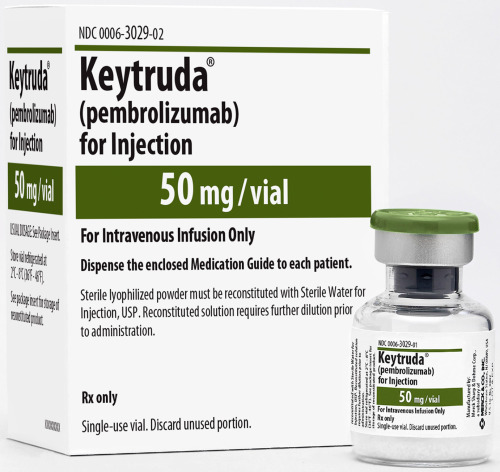FDA extends review of Merck & Co's Keytruda in lung cancer use

US regulators have pushed back the deadline for their review of Merck & Co’s immunotherapy Keytruda in certain patients with untreated lung cancer, after the pharmaceutical company submitted new data.
US-based Merck & Co is asking the FDA to review Keytruda (pembrolizumab) as a monotherapy for certain untreated patients with locally-advanced or metastatic non-small cell lung cancer (NSCLC).
At least 1% of tumour cells must express the biomarker PD-L1, and patients must not have the EGFR or ALK mutations.
Merck’s filing is based on results from the phase 3 KEYNOTE-042 trial, where Keytruda monotherapy demonstrated a significant improvement in overall survival compared with chemotherapy in this patient group.
The company submitted additional data and analyses to the FDA, constituting a major amendment to the dossier and as a result the FDA pushed back its target decision date back by three months to April 2019.
Giving the drug as a monotherapy will be important to patients who may wish to avoid taking drugs that include chemotherapy and its associated side-effects.
Keytruda is already approved in a second-line setting after chemotherapy in patients with this set of mutations, and the new indication will help Merck consolidate Keytruda’s leading position in first line lung cancer - particularly as Bristol-Myers Squibb’s rival PD-1 drug Opdivo (nivolumab) is struggling to make an impression in this lucrative indication.
AstraZeneca’s PD-L1 class drug Imfinzi (durvalumab) has also fallen short in first line lung cancer trials in combination with a CTLA-4 class drug, tremelimumab.
Merck & Co’s main competition in first-line lung cancer looks likely to come from Roche, which has combined its Tecentriq (atezolimumab) with its older cancer drug Avastin (bevacizumab) and a chemotherapy cocktail.
Tecentriq, a PD-L1 class immunotherapy was FDA approved in first-line lung cancer in combination with Avastin and paclitaxel and carboplatin chemotherapy in certain lung cancer patients at the beginning of the month.
Tecentriq was approved in untreated patients with metastatic non-squamous non-small cell lung cancer, without EGFR or ALK tumour mutations, based on data from the Impower 150 figure showing the four-drug combination improved overall survival compared with Avastin and the two chemotherapies.












